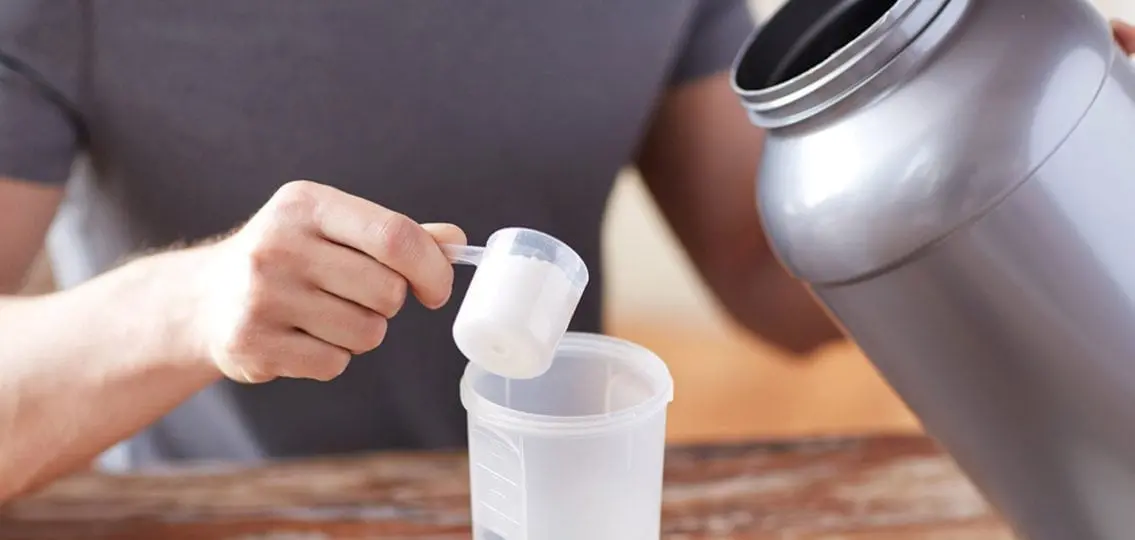If you are the parent of an athletic teen, you may have been asked (or begged!) to purchase protein powder so your teenager can bulk up or increase muscle mass. You are likely wondering whether these supplements (usually mixed into a smoothie) are really needed—or whether protein powder for teens is safe.
2 Reasons to Say No to Protein Powders:
1. Real food is preferable.
Most nutritionists agree that protein powders for teens, while generally not harmful, are unnecessary.
“Hardly any teens need to use protein powders,” says Dr. Whitney Casares, a Stanford-trained pediatrician and creator of ModernMommyDoc.com. “In most cases, they can get more than enough protein from eating a well-rounded diet of real food.”
Teens on average need 1 gram of protein per kilogram (kg) of body weight per day, says Dr. Casares. While highly competitive teen athletes might need more, Dr. Casares recommends that you consult a dietician to determine whether protein powders are necessary, and in what amounts. She warns that excess protein can overwhelm the kidneys and liver.
What if you are concerned about your teenager’s nutritional intake—for instance, if your teen is a vegetarian or underweight? Under the guidance of a dietician, protein powder may be appropriate in some cases, says Colene Stoernell, a registered dietician,
But even then, Stoernell says your best bet is to get protein directly from real foods. Beans, lentils, soy products, chickpeas, hemp seeds, and even powdered peanut butter and dried milk powder added to smoothies are superior alternatives to protein powders.
2. Protein powders are not FDA regulated.
Before recommending protein supplements for teenage athletes, Dr. Jacqueline Winkelmann, a pediatrician at Children’s Hospital of Orange County, warns parents that contamination is a risk.
“The FDA does not regulate protein powders, and studies have found many contaminants, including heavy metals—lead, arsenic, and other chemicals” in them.
Stoernell suggests contacting companies directly to find out if they employ third-party testing to ensure safety.




